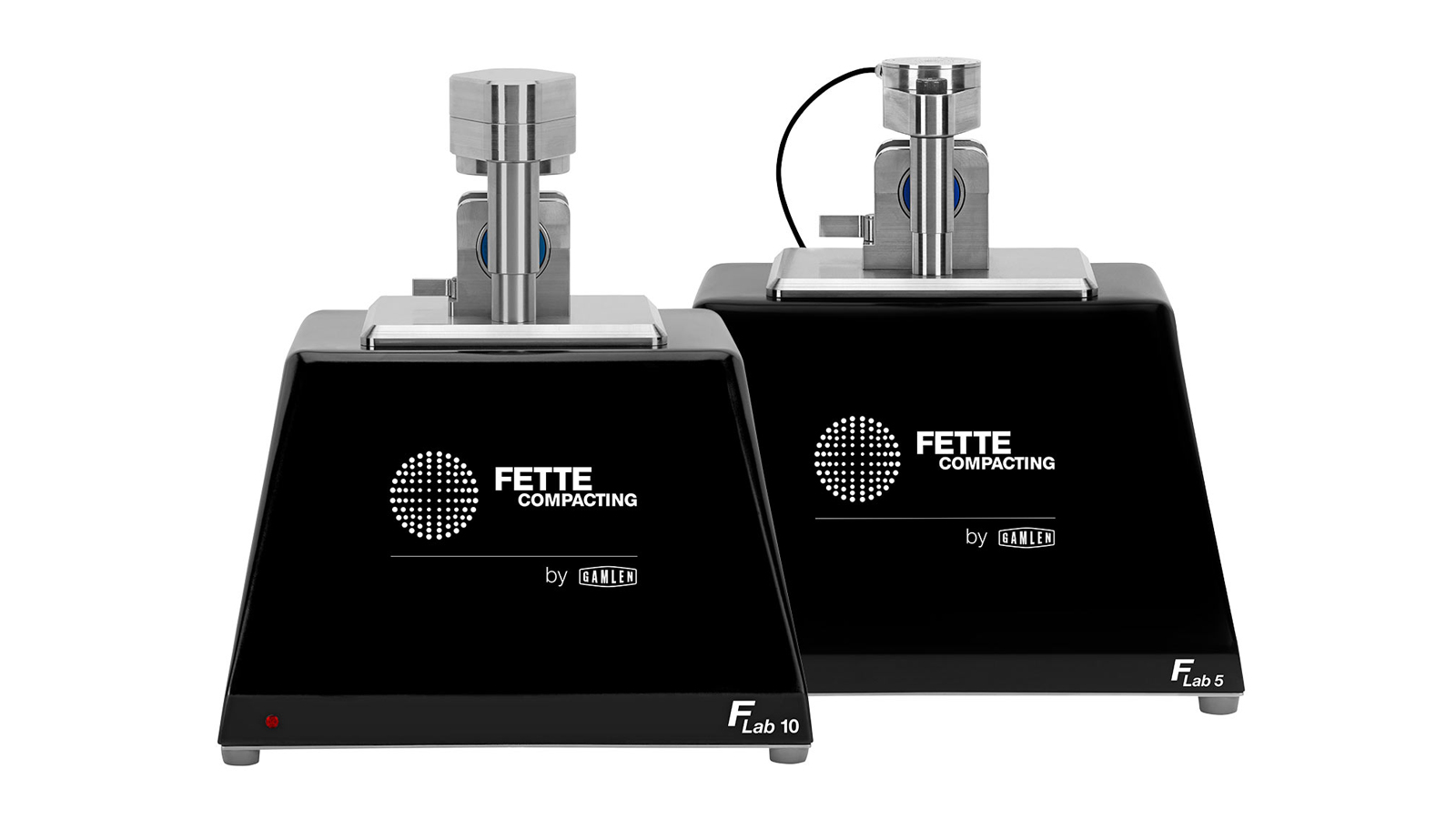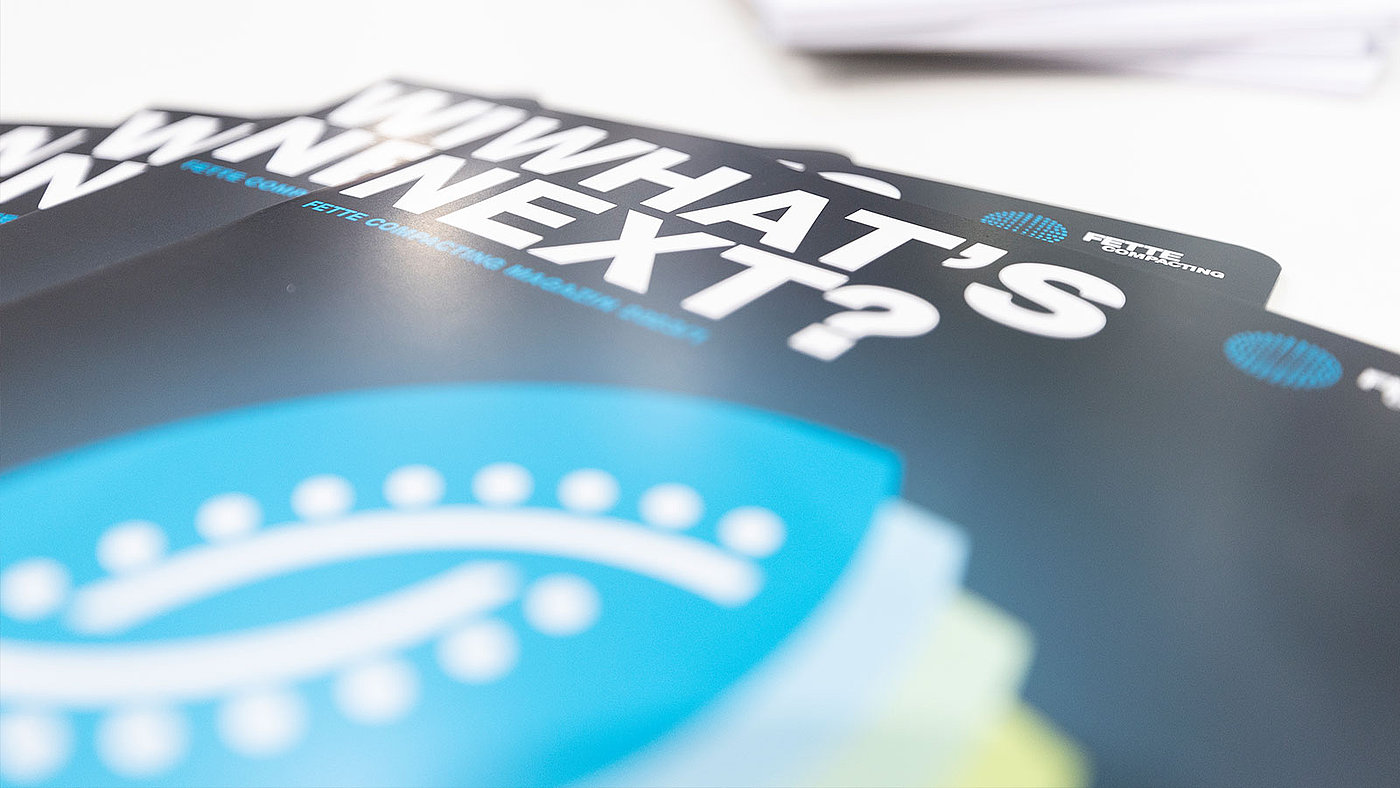With the space-saving F Lab Series, users can easily condense and analyze their formulations. The PCA units are also suitable for use in isolators.

Powder compaction is an important and often critical process in tablet production. Those who develop a precise understanding of the compacting behavior of their formulations at an early stage are clearly at an advantage.
How much compaction pressure do I need to compact my powder efficiently? Does my formulation tend to stick – or is it rather hard and coarse-grained, increasing the possibility of abrasive behavior? How do deviations in raw material deliveries affect tablet quality?
Questions like these arise again and again in the production of pharmaceuticals and dietary supplements. Practice has shown that an exact understanding of powders and blends is crucial for manufacturing tablets of constantly high quality and avoiding undesirable powder phenomena. Users who understand their formulations in detail ensure sustainable product quality and prevent efficiency losses or even production downtime.
Quality by Design is the key
The central key on this path is Quality by Design (QbD), especially when it comes to sophisticated active ingredients, excipients and additives. According to QbD, an in-depth understanding of the product and process is required to produce tablets with the best possible, consistent quality. “We have therefore placed the precision understanding of powders and formulations right at the center of our Lab Solutions area,” explains Doreen Dunst, Application Specialist at Fette Compacting. “There is also an equal focus on detailed data analysis and intuitive operation of the analysis equipment. Only when both aspects – precision and simplicity – merge, can Quality by Design be optimally integrated into everyday production routines.”
The F Lab Series offered by Fette Compacting meets this demand with compact and state-of-the-art Powder Compacting Analyzing (PCA) units. For example, they provide information on how hard a tablet can be or the extent to which a powder tends to stick. This knowledge is always helpful, particularly in the development of formulations. If mixtures are understood at an early stage, the times for scale-up and time-to-market can also be shortened. This information is also useful in troubleshooting, as problematic batches can be compared with trouble-free batches and causes can be better identified. Only small amounts of material are required for each analysis, so the system saves time and material overall – and is therefore particularly costefficient. “There is no other way to obtain valuable data for tablet production as easily, quickly and cheaply,” emphasizes Dunst.
Collecting meaningful data
Two units are available for the analysis: F Lab 5 offers a compaction pressure up to five Kilonewtons and is suitable for tablets with diameters up to ten millimeters. F Lab 10 achieves up to ten Kilonewtons for tablets with diameters up to 15 millimeters. Both analyzers are extremely compact, easy to handle, and easy to clean. They also permit the production of smaller tablet volumes, for example for preformulation studies. In order to obtain meaningful data, other equipment is also used, forming a comprehensive analysis system in combination with the PCA units. These include measuring tablet properties using scales and a micrometer, as well as strength testing with a breaking strength tester. Customers are free to purchase all equipment from a single source or to use their existing measuring instruments together with the F Lab.
The analysis process could hardly be any easier: an operator weighs the requisite powder volume, fills the die, and starts the process via the integrated software. During the compacting process, F Lab measures the compaction pressure as a force-displacement profile, as well as the force to eject and strip the tablet. The other equipment records the physical tablet properties. This process is repeated for various compaction pressures, giving rise to extensive data series.
Data evaluation made easy
Finally, the data collected by the analyzers is bundled, correlated and clearly displayed on a dashboard via the F Lab Series software. Thanks to visualization with graphs and color codes, even less specialized personnel can immediately see which powder mixtures have the best tableting properties. This provides users with an overview of all relevant powder properties in only one hour. It usually takes about two hours for operators to learn how to use it.
“In practice, this data can often help in troubleshooting production problems,” reports Dunst. “With F Lab, we can identify the exact causes and support customers in selecting optimal excipients for their respective formulations. Other important fields of application in the pharmaceutical and nutrition sectors include routine checks of raw materials and intermediates, as well as supplier qualification.”


In an exemplary analysis for a pharmaceutical producer, tabletability and the ejection stress profile were determined, among other things. For this purpose, the tensile strength and the normalized ejection stress were related to the compaction pressure over a wide range. The green areas indicate the respective optimum range. As can easily be seen, the test series with the green and orange data are already in the optimum range, while the powder mixture shown in blue is less suitable for best quality results and would therefore need to be changed.
Automated data analysis offers several advantages:
+ simplified data analysis thanks to fully-integrated software
+ automatic generation of data in accordance with the United States Pharmacopeia (USP)
+ material and formulation comparisons at a glance
+ easy data interpretation using color codes
+ no compacting analysis experience required
+ no manual data entry for the entire system






